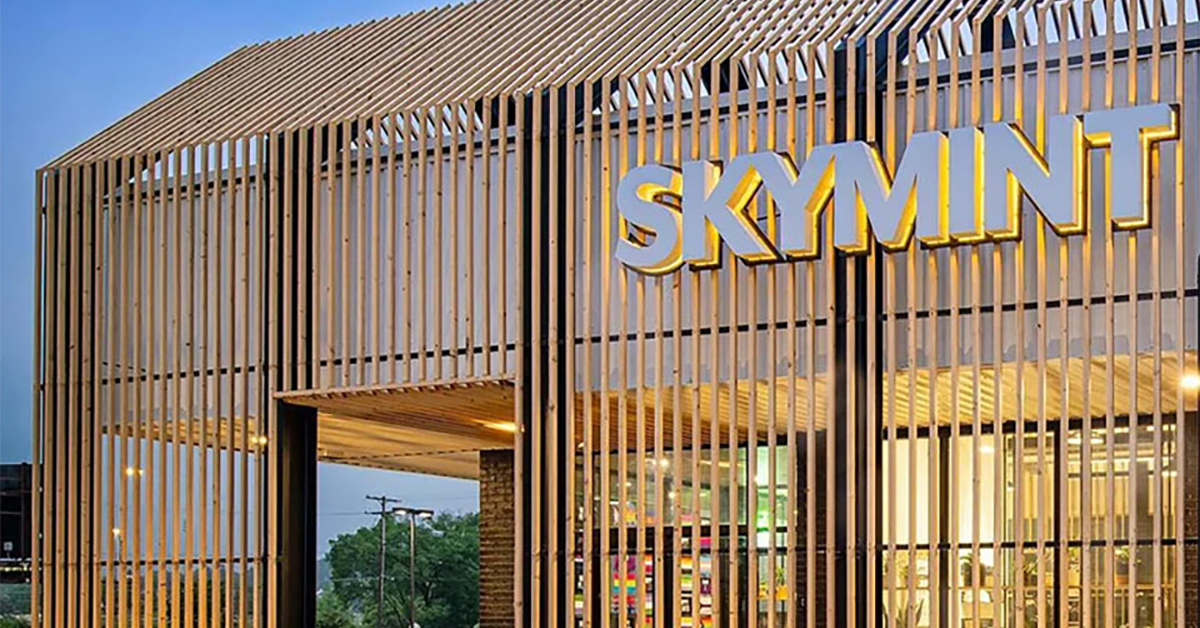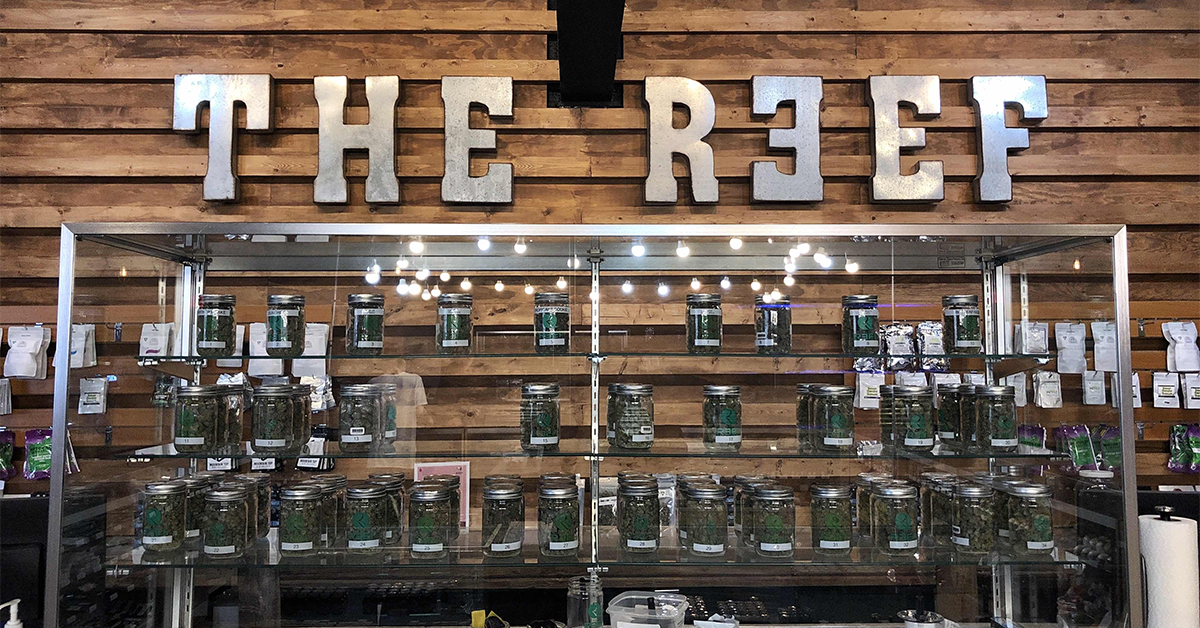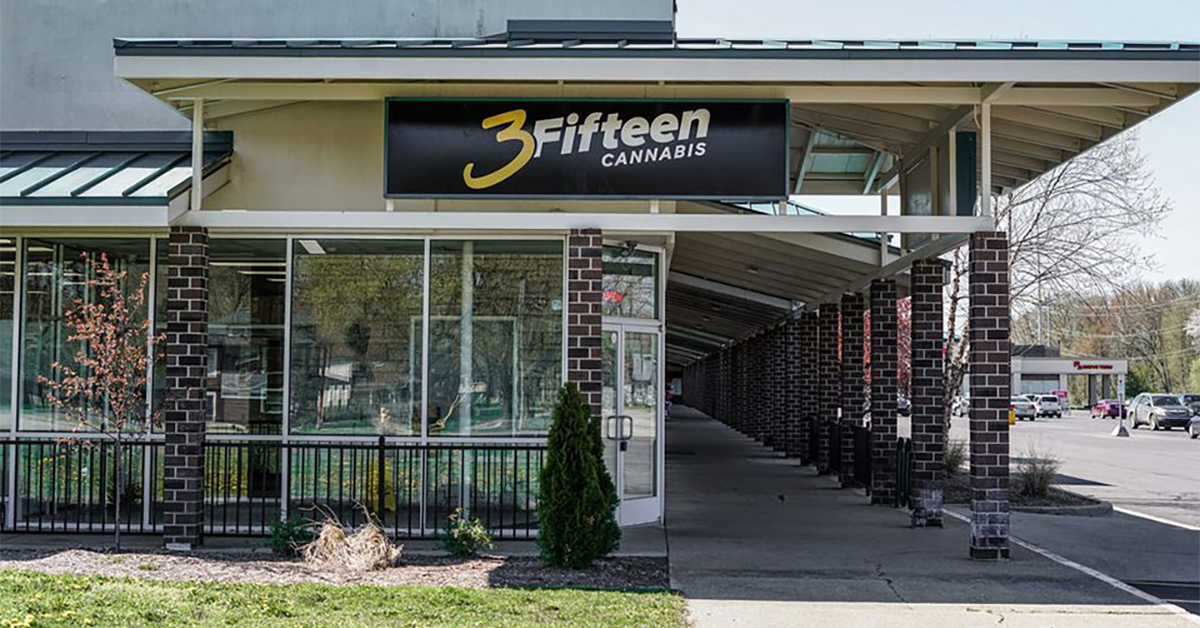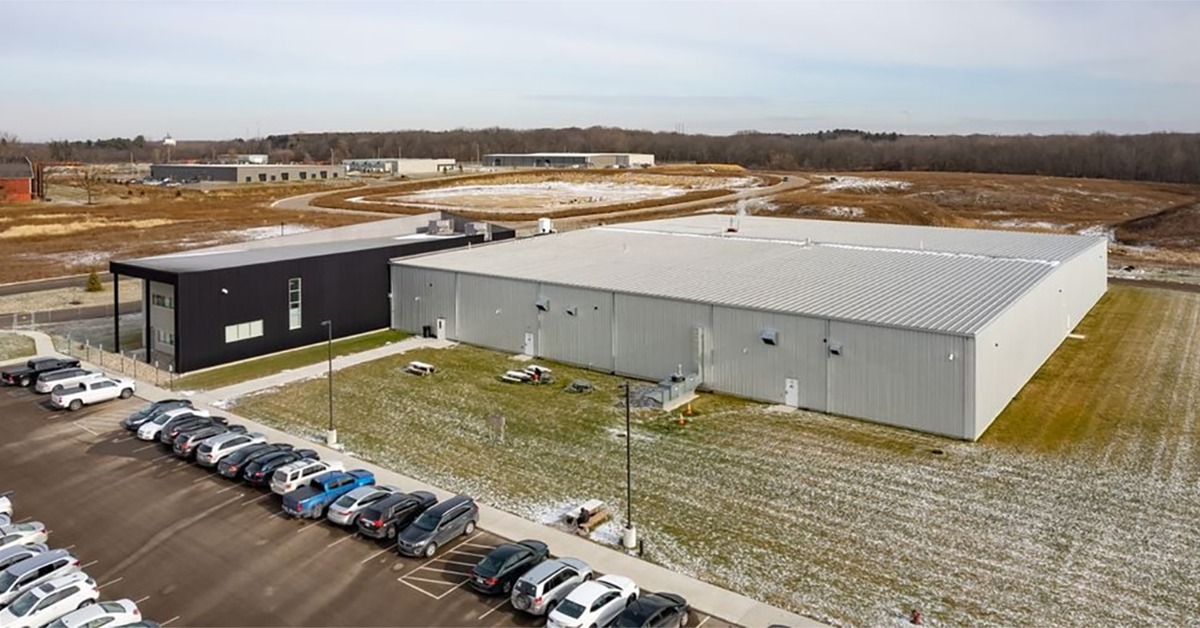Skymint's Challenges Reflect Michigan's Evolving Cannabis Landscape

The recent developments in Michigan's cannabis industry, marked by the financial and operational challenges of Skymint, present a complex landscape with both setbacks and opportunities. While our previous report detailed Skymint's closure of its Harvest Park cultivation facility, the broader implications of this event offer insights into the evolving dynamics of the state's marijuana market.
Skymint's ambitious growth targets were not met, as evidenced by their significant shortfall from the projected $263 million in sales for 2022. This misalignment between expectations and market realities highlights the difficulties faced by companies in accurately predicting market trends in the rapidly shifting cannabis sector. Despite holding a small share of the state's total retail licenses and an even smaller percentage of growing capacity, Skymint's aspirations did not align with the competitive and fluctuating nature of the marijuana industry.
The acquisition of Skymint by Tropics, two months prior to the closure announcement, has positioned the company to continue its operations in the retail segment. Skymint's shift in focus reflects a strategic adaptation to the current market conditions and underscores the importance of flexibility and responsiveness in the cannabis industry.
The cessation of Skymint's growing operations, while significant, does not necessarily predict a broader downturn in the industry. In fact, the situation has been perceived as an opportunity by other market players. Mike Elias, CEO of Common Citizen, and Andrew Sereno, CEO of Glacial Farms, both recognize the potential benefits for smaller growers and the overall market stability.
"I think the entire market is benefiting," said Mike Elias. "It's especially good for smaller operators trying to get a foothold. Keep in mind they're still operating a fairly large portfolio with a third party now taking the cultivation risk."
The fate of Skymint's Harvest Park facility, owned by Innovative Industrial Properties, remains uncertain. However, its impact on the market, considering Skymint's modest production capacity, is expected to be limited. Lance Boldrey, a cannabis attorney, notes that Skymint's contribution to the state's overall cultivation was relatively minor.
Despite these industry challenges, Michigan's cannabis market has shown remarkable resilience. Consumer demand has remained strong, driving significant sales growth. The state recorded $258.5 million in marijuana sales in October, with projections indicating a rise to nearly $3 billion for the year, surpassing the previous year's figures.
Furthermore, the potential federal reclassification of marijuana from Schedule I to Schedule III holds promise for the industry. This change could alleviate the heavy tax burden currently faced by cannabis businesses, potentially leading to more robust growth and stability in the Michigan market.
In conclusion, Skymint's recent challenges and strategic shifts are emblematic of the broader trends in Michigan's cannabis industry. The sector continues to navigate the complexities of market supply and demand, regulatory landscapes, and competitive pressures, demonstrating both the risks and opportunities inherent in this evolving industry.
The Reef Faces Serious Compliance Issues in CRA's Latest Enforcement Action

The Clark Street Investment Group Inc., operating under the name The Reef, has been subject to a formal complaint filed by the Cannabis Regulatory Agency (CRA) of Michigan. The complaint alleges multiple violations of the Medical Marihuana Facilities Licensing Act (MMFLA) and associated administrative rules by The Reef, a licensed medical marijuana provisioning center in Detroit, Michigan.
According to the CRA's investigation, The Reef was found to have engaged in several compliance breaches. These include selling marijuana products to individuals without medical marijuana cards and multiple instances of improper handling and labeling of marijuana products. During unannounced site visits, CRA investigators discovered numerous discrepancies in product tracking and inventory management. They found pre-rolled marijuana products without the required Metrc tags, which are vital for ensuring compliance with state tracking systems. In addition, the investigators uncovered instances of mishandling of marijuana products, including an employee licking his fingers while hand-rolling pre-rolls, leading to potential contamination.
The complaint also highlights the center's failure to securely lock areas containing marijuana products, a breach of state regulations requiring commercial-grade locks for security. Surveillance footage revealed employees consuming food and beverages in areas where marijuana products were stored, processed, or packaged, further violating state rules.
The CRA's complaint outlines numerous counts of violations, each pointing to a specific aspect of regulatory non-compliance, ranging from inaccurate inventory management to improper labeling and packaging of marijuana products. The Reef faces potential fines, license suspension, revocation, restriction, or non-renewal if these violations are confirmed.
The Reef has been given the opportunity to respond to these allegations and can request a hearing to contest the CRA's findings. This case underscores the importance of stringent compliance with state cannabis regulations and the ongoing oversight role of agencies like the CRA in ensuring safe and legal cannabis operations.
3Fifteen Cannabis Fights for Asset Control in Skymint Acquisition Dispute

The ongoing legal saga between Michigan-based cannabis operator 3Fifteen Cannabis and Skymint, a fellow cannabis company, continues to unfold. Initially, 3Fifteen was set to be acquired by Skymint, but Skymint's financial woes complicated the process. Despite Skymint not completing payment for the acquisition, a court ruling denied 3Fifteen's request to terminate the deal and retrieve their assets.
Mitch Baruchowitz, an investor in 3Fifteen through Merida Capital, revealed that their appeal against the initial court decision has been approved. This development freezes the receivership status for four months, delaying any action until 3Fifteen's appeal is heard.
Background of the Dispute
The acquisition agreement dates back to September 2021, when Skymint agreed to acquire 3Fifteen, which operated 12 dispensaries in Michigan. This move was expected to position Skymint as a dominant player in Michigan's burgeoning adult-use cannabis market.
In April 2022, Skymint announced the closure of this deal and appointed Baruchowitz to its board. However, the situation took a turn as Skymint began struggling financially, incurring substantial debt and monthly cash burn of $3 million. Bankruptcy wasn't an option due to federal cannabis laws, leading Skymint to enter receivership.
Allegations of Misconduct and Legal Challenges
There are reported accusations against Skymint's former CEO Jeff Radway, involving misuse of company funds. These allegations were part of the reasons 3Fifteen sought to terminate the deal, though the court initially ruled against them.
Persisting with their legal fight, 3Fifteen amended their complaint and appealed. The revised complaint alleges that Skymint's lenders, SNDL and its joint venture with SAF Group, Sunstream, pressured Skymint to take over 3Fifteen's assets without full disclosure of relevant information about Sunstream's loans to Skymint.
The complaint further accuses SNDL of SEC violations, alleging non-disclosure of material details about Sunstream's governance and the joint venture agreement with SAF Group. It also highlights Skymint's financial losses under SNDL/Sunstream's guidance.
3Fifteen's Position and Future Prospects
3Fifteen argues that the acquisition should not have proceeded due to the lack of accurate information and alleges that Sunstream aims to enhance its portfolio by acquiring the assets. The appeal seeks the return of all 3Fifteen dispensaries.
Baruchowitz commented on the prolonged timeline for resolution and drew parallels between this case and another investor lawsuit, suggesting a pattern in Sunstream's business strategy.
As the legal battle continues, the future of 3Fifteen's assets and the acquisition by Skymint remains uncertain, highlighting the complexities of mergers and acquisitions in the evolving cannabis industry.
Skymint Announces Closure of Harvest Park Facility Amid Industry Challenges

Skymint has announced the impending shutdown of its Harvest Park facility near Lansing, Michigan. This 56,000-square-foot cultivation plant is set to halt its operations, coinciding with the termination of approximately 180 employees by March 1st, 2024.
Industry Challenges Prompt Closure
The decision to close the Harvest Park facility comes amid several industry-wide challenges that Skymint, like other players in the Michigan cannabis sector, has been grappling with. The company cites an oversupply in the market, falling prices, and escalating costs as key factors influencing this move. In a statement, Skymint expressed its view that this step is necessary to stay competitive and ensure the long-term success of its brands.
Despite the closure, Skymint maintains its presence in the state with 22 retail locations. However, the company has experienced a notable financial downturn, attributed to dropping marijuana prices and alleged internal mismanagement.
Acquisition by Tropics LP
In a significant industry move, Tropics LP, a Canadian entity now known as Skymint Acquisition Co., acquired Skymint out of bankruptcy. The deal, valued at $109.4 million and finalized in October, was conducted through a stalking horse bid. Tropics LP, associated with SunStream Bancorp Inc. and SNDL Inc., took over Skymint's cultivation assets and the leases of 22 dispensaries. These dispensaries, as of September, were reported to generate about $68 million in annualized sales.
Uncertainty and Layoffs
The upcoming layoffs at Harvest Park, slated to begin on February 12th, 2024, raise questions about the influence of Tropics LP, Skymint's new owner, in this decision. The acquisition process is expected to be fully completed in the early part of the following year.
Financial Struggles and Legal Issues
Skymint's path to closure and layoffs can be traced back to financial and legal difficulties. The company faced a $127 million lawsuit from Tropics over breached agreements, stemming from a $70 million loan given in September 2021 for the acquisition of 3Fifteen Cannabis. Skymint's failure to meet its financial obligations led to additional loans and exacerbated its financial woes.
Court documents revealed a stark decline in Skymint's financial health, with falling daily sales and a monthly cash burn rate of $3 million. By 2022, revenues had dropped significantly to $110 million, far below the projected $263 million. The lawsuit also highlighted issues with unpaid taxes and fees.
Moreover, Skymint's decision to surrender the lease of the Summit Sports and Ice Complex to developers Innovative Industrial Properties Inc., a cannabis-focused property developer, further illustrated its fiscal struggles. IIP, which also owns the Harvest Park property, has not commented on the facility's future amidst Skymint's ongoing challenges.
Michigan's LightSky Farms Blends Winemaking Techniques with Cannabis Cultivation

LightSky Farms, a prominent cannabis cultivation company in Michigan, has established a unique approach to cannabis production that mirrors the meticulous methods of winemaking. Founded in 2013 by Shannon Walters, a seasoned vintner, LightSky Farms (LSF) has become a well-known name in the state for its high-quality cannabis products.
LSF's cultivation practices are deeply rooted in a 'flavor-first' philosophy, as explained by Brooke Widener, the company's IPM coordinator. This approach prioritizes creating a memorable and enjoyable experience for consumers, focusing on the quality and sensory aspects of cannabis rather than sheer production volume.
Originally part of Michigan's caregiver program, LSF transitioned to the regulated Metrc market in 2018, following a partnership with the Landaal family, operators of Landaal Packaging Systems in Flint. The company has earned over 40 awards in the cannabis industry, including several High Times' Cannabis Cups and three first-place trophies at the recent Michigan Zalympix, underscoring its commitment to superior product experiences.
At the heart of LSF's strategy is a unique cultivation method that enhances the natural production of aromatic compounds like terpenes and flavonoids. This method involves environmental manipulation techniques, such as controlled dry back farming, similar to those used in viticulture. Widener, with her background in dry farming at a cannabis farm, explains that stressing the plants through these techniques can boost cannabinoid and terpene levels, sometimes leading to the expression of profiles that wouldn't normally occur under standard conditions.
LSF also places a high emphasis on data collection and analysis in its cultivation process. This includes daily data collection on watering rates, fertigation runoff, and light intensity, enabling the team to make precise adjustments to their nutrient recipes and lighting conditions. For example, LSF's flower lead, Chris Koslowski, regularly checks the photosynthetic photon flux density (PPFD) to ensure even canopy lighting and adjust light intensity based on plant needs. This meticulous attention to detail allows LSF to fine-tune the growth conditions for different strains, maximizing their genetic potential.
The cultivation facility, an impressive 85,000-square-foot space, has been designed with efficiency and quality in mind. LSF has adopted Fluence's LED lighting systems, preferring them over the older high-intensity discharge lamps for their energy efficiency and lower thermal output. This choice reflects LSF's commitment to environmentally conscious production and cost-effectiveness, which is crucial in maintaining competitive pricing for their products.
Brittany Hertzberg, LSF's sales and marketing manager, emphasizes the importance of producing safe, high-quality products while navigating the challenges of the adult-use market and the COVID-19 pandemic. The use of high-efficiency LEDs and other resource-saving practices has allowed LSF to offer its products at more accessible prices, fulfilling their mission of providing high-quality cannabis to a broader customer base.
Looking ahead, LSF is positioned for further expansion. With four additional LED-equipped grow rooms ready for activation, the company anticipates increasing demand. This is evidenced by a 15% increase in market penetration on the wholesale side over the past nine months, marking a significant growth phase for LightSky Farms.
Navigating Housing Policies in the Era of Legalized Marijuana

Medically prescribed marijuana use is permitted in 37 states and the District of Columbia, specifically for medical purposes. In addition, 19 states (Alaska, Arizona, California, Colorado, Connecticut, District of Columbia, Illinois, Maine, Massachusetts, Michigan, Montana, Nevada, New Jersey, New Mexico, Ohio, Oregon, Vermont, Virginia, and Washington) have also legalized recreational marijuana.
Support us as a patron to access this exclusive article.
While we're reluctant to put content behind a paywall, we value our patrons by offering exclusive content just for them. Rest assured, our core mission of providing unbiased news stories remains accessible to all. Our aim is to deliver informative content with minimal ads, and your support means the world to us.
View our Patreon

 Helpful Links
Helpful Links